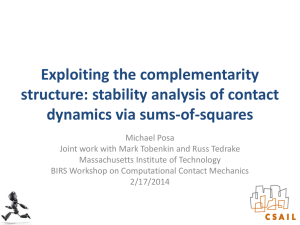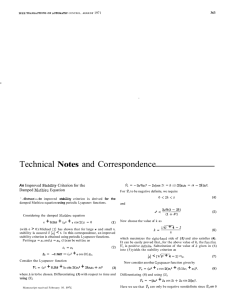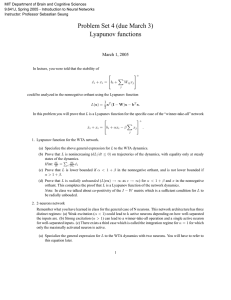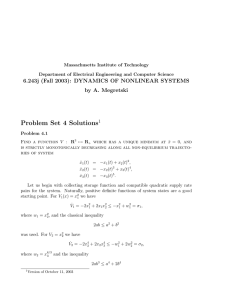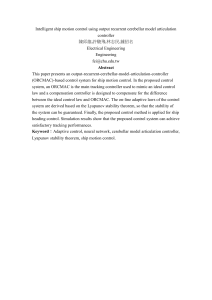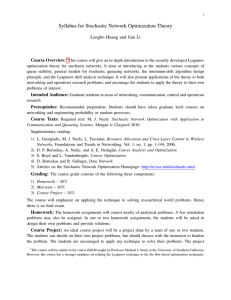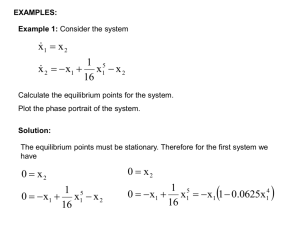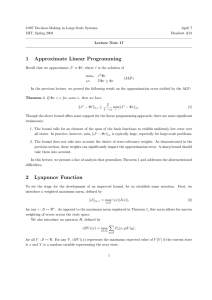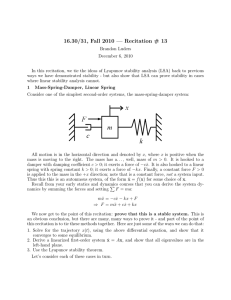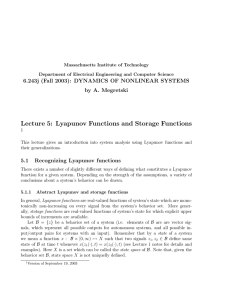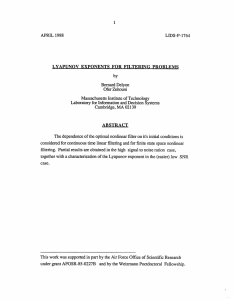13 Lyapunov stability
advertisement
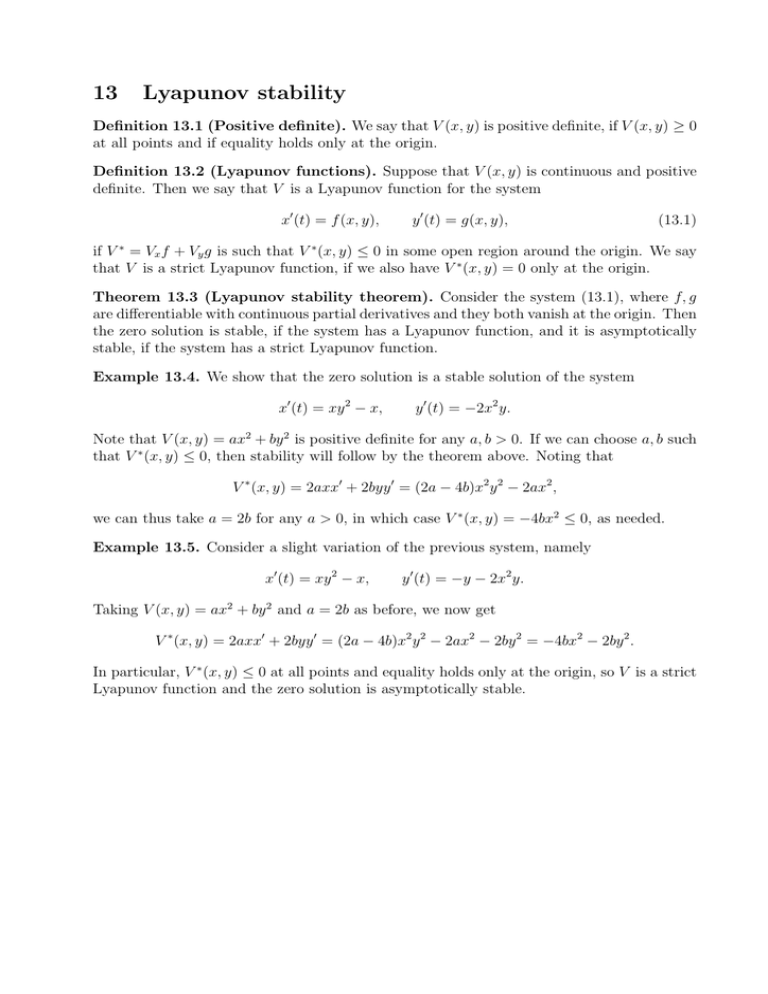
13 Lyapunov stability Definition 13.1 (Positive definite). We say that V (x, y) is positive definite, if V (x, y) ≥ 0 at all points and if equality holds only at the origin. Definition 13.2 (Lyapunov functions). Suppose that V (x, y) is continuous and positive definite. Then we say that V is a Lyapunov function for the system x0 (t) = f (x, y), y 0 (t) = g(x, y), (13.1) if V ∗ = Vx f + Vy g is such that V ∗ (x, y) ≤ 0 in some open region around the origin. We say that V is a strict Lyapunov function, if we also have V ∗ (x, y) = 0 only at the origin. Theorem 13.3 (Lyapunov stability theorem). Consider the system (13.1), where f, g are differentiable with continuous partial derivatives and they both vanish at the origin. Then the zero solution is stable, if the system has a Lyapunov function, and it is asymptotically stable, if the system has a strict Lyapunov function. Example 13.4. We show that the zero solution is a stable solution of the system x0 (t) = xy 2 − x, y 0 (t) = −2x2 y. Note that V (x, y) = ax2 + by 2 is positive definite for any a, b > 0. If we can choose a, b such that V ∗ (x, y) ≤ 0, then stability will follow by the theorem above. Noting that V ∗ (x, y) = 2axx0 + 2byy 0 = (2a − 4b)x2 y 2 − 2ax2 , we can thus take a = 2b for any a > 0, in which case V ∗ (x, y) = −4bx2 ≤ 0, as needed. Example 13.5. Consider a slight variation of the previous system, namely x0 (t) = xy 2 − x, y 0 (t) = −y − 2x2 y. Taking V (x, y) = ax2 + by 2 and a = 2b as before, we now get V ∗ (x, y) = 2axx0 + 2byy 0 = (2a − 4b)x2 y 2 − 2ax2 − 2by 2 = −4bx2 − 2by 2 . In particular, V ∗ (x, y) ≤ 0 at all points and equality holds only at the origin, so V is a strict Lyapunov function and the zero solution is asymptotically stable.
